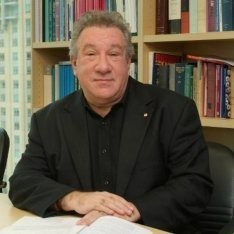Press Council’s David Weisbrot: Time to put foot down on threat to press freedom
 In a wide-ranging interview Australian Press Council chair Professor David Weisbrot spoke to Miranda Ward on the issues facing press freedom in Australia, how the Press Council wants to change defamation laws, its membership drive and relationship with News Corp.
In a wide-ranging interview Australian Press Council chair Professor David Weisbrot spoke to Miranda Ward on the issues facing press freedom in Australia, how the Press Council wants to change defamation laws, its membership drive and relationship with News Corp.
Recently introduced anti-terrorism laws and metadata retention laws indicate a downward path for press freedom in this country, warns Professor David Weisbrot, the man running Australia’s independent press complains body.
“We understand it’s challenging times for governments to keep populations safe. But we’re seeing unprecedented attacks on press freedom. Some of them are intended,” he says.
“The clampdown on whistle blowers, punishing doctors who speak out against conditions in detention camps, proposed legislation that would say animal welfare authorities would be liable for blowing the whistle on abusive practices regarding animals. Those are unconscionable that we would have criminal penalties for people who identify malpractice, we should be rewarding people who expose it.”

